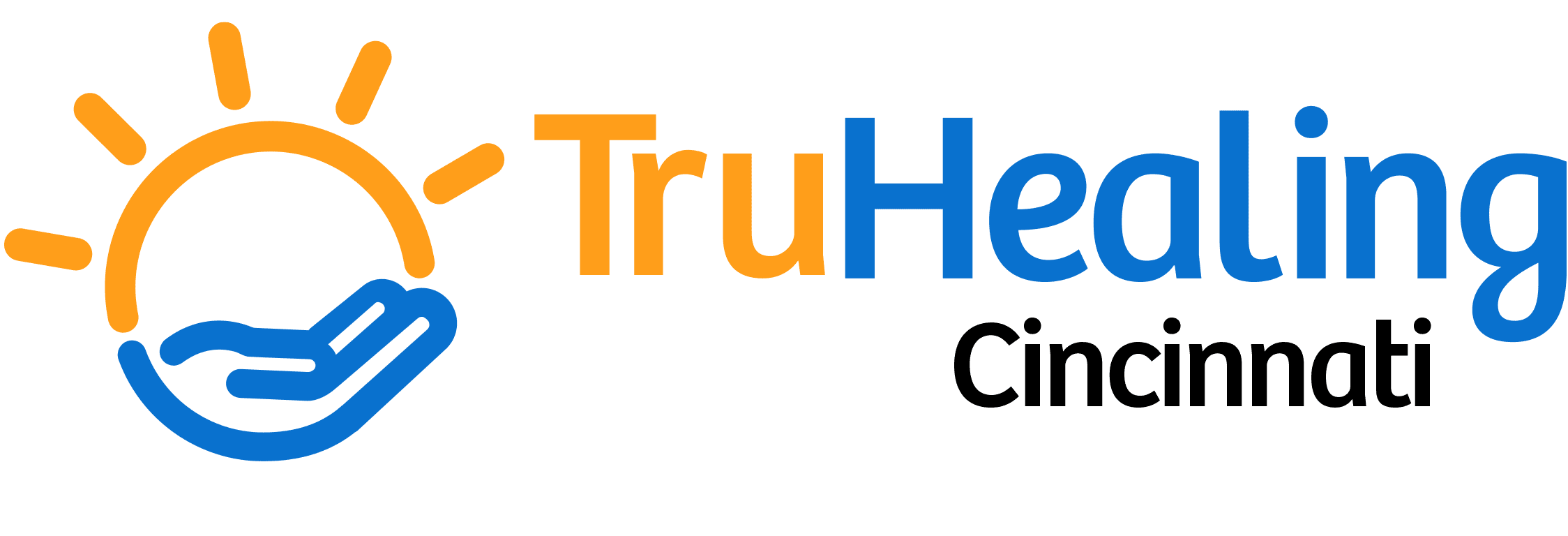You Didn’t Lose Everything—You Just Lost Your Balance
It starts quietly.
Maybe it was a birthday. A breakup. A long week where the weight of life got heavier than it’s been in months. You weren’t planning on using again—you just didn’t say no fast enough.
And now, that single moment feels like it undid everything.
We’ve seen it more times than we can count. You had 90 days. You were showing up. You were starting to believe it might last this time. Then came the slip, and with it, that sick feeling in your gut: “I blew it.”
But you didn’t.
At TruHealing Cincinnati, we want you to hear this: one slip does not erase your recovery. It doesn’t erase your progress. And it certainly doesn’t erase your right to come back.
Relapse Isn’t a Failure—It’s Feedback
In the early days of recovery, you’re often running on hope and momentum. But when the momentum fades, stress creeps in, or old habits sneak through the cracks—slipping doesn’t mean you’ve failed. It means something needs more care.
Relapse can show up for many reasons:
- You’re emotionally overwhelmed but don’t have the words yet
- You stopped doing the small things that kept you grounded
- You feel lonely—even in rooms full of people
- Something triggered you, and you didn’t see it coming
Whatever the cause, it’s not a moral issue. It’s a signal. A moment that says: “Let’s look at this again—with more support this time.”
And one of the most powerful places to do that is in a residential treatment program.
Returning to Treatment Doesn’t Mean Starting Over
There’s a myth in recovery that relapse sends you back to “Day One.” That’s not true.
You are not the same person you were the first time you walked through our doors. You know more now—about yourself, your triggers, your limits. And coming back to treatment with that awareness means we can go deeper, faster, with more clarity than before.
This time, it’s not about relearning. It’s about reconnecting:
- Reconnecting to your “why”
- Reconnecting to safety and structure
- Reconnecting to a version of yourself that doesn’t feel so far away
Residential care gives you space to do that. Space to breathe. To rest. To not explain yourself every second of the day.
You Are Not the Only One
Shame isolates us. It tells you you’re the only one who’s messed up after making progress. But here’s the reality: more than half of people in recovery will experience a relapse. Not because they’re weak—but because recovery is not a straight line.
We see it every day:
- Alumni who slipped at 90 days and returned for two more weeks of care
- Clients who came back after a relapse and finally said the thing they couldn’t say the first time
- People who needed a second round—not because they didn’t care, but because they cared enough to come back
And when they did, the shame began to loosen its grip.
One Client’s Story: “I Thought I Ruined Everything”
Ben* had just passed 100 days sober. He was working again. Rebuilding trust with his sister. Showing up to meetings. And then, out of nowhere, he found himself in his old neighborhood, in his old routine—with his old dealer’s number in his phone.
He used. Not for a week. Just for a night. But when he woke up, it felt like all his progress had been a lie.
He called us the next day and said what so many have said before:
“I thought I ruined everything.”
But he didn’t. He came back. He stayed for 28 days. He talked about the grief he’d never named. He finally let himself be angry in a way he hadn’t allowed before.
And he left—not broken, not starting over—but more grounded than ever.
Why a Residential Treatment Program Helps After a Slip
After relapse, your mind spins with questions:
Shouldn’t I be able to bounce back? Do I really need residential again? What will people think?
But trying to “white-knuckle it” through shame often pushes people further away from recovery.
Residential treatment gives you space to:
- Stabilize emotionally and physically
- Rework relapse prevention tools with deeper honesty
- Identify blind spots that weren’t clear last time
- Let your nervous system calm down
- Rebuild trust—in yourself
Our residential treatment program in Cincinnati, Ohio is designed to support both first-time clients and alumni. We adjust your care plan to reflect where you are now, not where you were when you first entered.
You Still Belong in This Space
This may be the hardest part to believe: You’re still allowed here.
Relapse whispers lies: “They’ll judge you. You blew your chance. They’ll see you differently.”
But we don’t see your relapse as weakness. We see it as a reason to stay close. You belong here as much today as you did on Day One.
If you’re looking for a residential treatment program in Lawrenceburg or Springfield and need help finding your way back to care, we can support your next step.
Recovery After Relapse Looks Different—And That’s Okay
When you return to treatment after a slip, it’s not about replicating what you did before. It’s about evolving your recovery.
This time, maybe it’s about:
- Addressing trauma you weren’t ready to name the first time
- Exploring medication options to manage co-occurring symptoms
- Building a more realistic aftercare plan
- Opening up in group therapy in ways you didn’t before
Your next chapter in treatment doesn’t have to look like the last one. In fact, it probably shouldn’t.
FAQs: Coming Back to Residential Treatment After Relapse
How long will I stay?
We offer flexible lengths of stay based on your needs. Many returning clients opt for 14 to 30 days, but we’ll work with you to create a plan that fits your current situation.
Will insurance cover a second treatment stay?
Most insurance plans do cover additional treatment, especially when it’s medically or clinically justified by relapse. Our team can verify your benefits quickly and confidentially.
What if I’m too ashamed to come back?
That’s a common feeling—and one that fades fast once you’re back in a safe, understanding environment. We won’t shame you. We’ll welcome you.
Can I come back even if I left early last time?
Yes. Whether you completed your program or left midway, you’re always welcome to return. Recovery isn’t a straight path—and we’re here for every twist in the road.
Will I have the same therapist or care team?
When possible, yes—but if you’d prefer someone new, that’s always an option. We want your second stay to reflect where you are now, emotionally and therapeutically.
You Are Not Defined by This Slip
This wasn’t the plan. You didn’t picture yourself here again. But here you are—and that means you still care. It means part of you still believes that a better life is possible.
We believe that too.
At TruHealing Cincinnati, we’re not keeping score. We’re not waiting for perfect. We’re showing up for people, even when it’s hard. Especially when it’s hard.
So if you’ve relapsed after 90 days, let this be your reminder: You are not back at the beginning. You are back on your feet. And we’re here to walk beside you.
Want to Return to Residential Treatment?
Call (888) 643-9118 or visit our Residential Treatment Program page to learn how we support returning alumni. You don’t have to explain everything. Just reach out—and we’ll meet you there.


